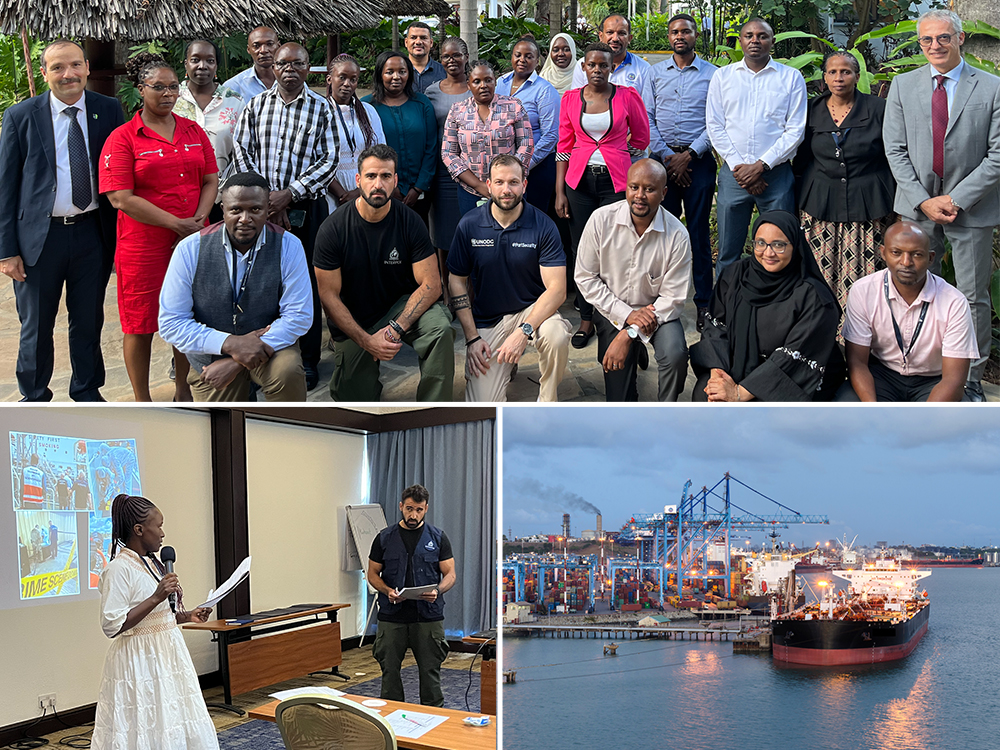What do port security personnel do in the event of a bomb threat or spillage of dangerous goods at the port?
These are the kind of scenarios explored in an inter-agency workshop in Mombasa, Kenya on maritime security. The joint training exercise aims to train law enforcement officers and Port Facility Security Officers (PFSOs) on how to manage security incidents within the port.
Running from 16 to 18 April, it is the latest in a series of IMO maritime security workshops on control and compliance, delivered under the EU-funded project on Port Security and Safety of Navigation in Eastern and Southern Africa and the Indian Ocean.
Seventeen Designated Authority (DA) personnel from Kenya are taking part in the workshop, co-organized by IMO, the United Nations Office on Drugs and Crime (UNODC) and the International Criminal Police Organization (INTERPOL).
Participants will increase their capacity and knowledge about the inter-agency coordination through national tabletop exercises. These include simulations and drills of various scenarios, from cyber-security and bomb threats to drug smuggling in ports.
The training is in line with the International Convention for the Safety of Life at Sea SOLAS Chapter XI-2 and ISPS Code on special measures to enhance maritime security.
The national workshop also encourages knowledge sharing and exchange of best practices to promote joint working and a whole of government approach.
Under the port security project, IMO aims to assist nine participating countries, including Kenya, to enhance maritime security and safety within the region, in line with the 2050 Africa’s Integrated Maritime Strategy.
